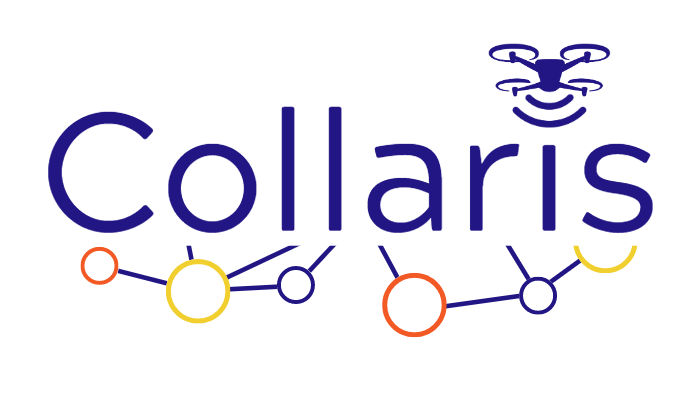Current projects
EUSOME Excellence Hub: Transforming Advanced Air Mobility in the Southeast Mediterranean Region Through Technological Advancements
 The EUSOME Excellence Hub is a 4-year European project dedicated to advancing Advanced Air Mobility (AAM) in the region. By addressing challenges in transport, emergency response, and climate adaptation, the project aims to integrate AAM into everyday life through innovation, training, and public engagement and to create a sustainable and transformative future for Southeast Europe.
The EUSOME Excellence Hub is a 4-year European project dedicated to advancing Advanced Air Mobility (AAM) in the region. By addressing challenges in transport, emergency response, and climate adaptation, the project aims to integrate AAM into everyday life through innovation, training, and public engagement and to create a sustainable and transformative future for Southeast Europe.
To overcome these challenges, EUSOME is developing an open research and innovation infrastructure, mentoring and training programs, a masterplan for adopting EASA’s AAM regulations, and services to support AAM implementation. A key initiative is the EUSOME Thematic Innovation Hub (TIH), which will explore open-access policies, market potential, and consultancy services while promoting public engagement for AAM acceptance.
The project aims to deliver scientific, economic, and societal benefits by enhancing workforce skills, fostering innovation, creating job opportunities, and accelerating AAM adoption tailored to regional needs.
EUSOME is led by the KIOS Center of Excellence at the University of Cyprus and involves 16 partners, including research institutions, aircraft manufacturers, civil aviation authorities, and innovation experts, working together to shape the future of air mobility in the region.
The EUSOME project is funded by the European Union's Horizon Europe research and innovation programme under grant agreement No 101187121.
Project website: https://www.eusome.eu/
Duration: January 2025 – December 2028
COLLARIS2
 Building upon the results of the COLLARIS Network, this project aims to continue, expand and further develop the already established international network of crisis management and civil protection practitioners, research institutions and public administration interested in collecting and transferring knowledge, exchanging experiences, skills, good practices and information on operational procedures for the optimal use of drones in crisis management and rescue missions.
Building upon the results of the COLLARIS Network, this project aims to continue, expand and further develop the already established international network of crisis management and civil protection practitioners, research institutions and public administration interested in collecting and transferring knowledge, exchanging experiences, skills, good practices and information on operational procedures for the optimal use of drones in crisis management and rescue missions.
During the COLLARIS1 project (2023-2024) the following observations were formulated and their validity was clearly endorsed by representatives of the civil protection user community:
- Drones, especially combined with AI solutions, are a game changer for crisis management activities, improving situational awareness and allowing us to react faster and better to emergencies.
- Today only a fraction of available capabilities of drone technology are used operationally for rescue and crisis management. This gap will grow as many more solutions will become available in the coming 3-5 years.
- Legal and organisational obstacles represent today the main impediment for wider implementation of drone solutions addressing rescue and crisis management needs.
- In particular, implementation of air traffic management solutions enabling safe drone flights will significantly increase the use of drones for rescue and crisis management.
- The majority of civil protection stakeholders has insufficient organisational arrangements and know-how for widespread and fully efficient use of drones in their operations.
To effectively stimulate a wider and more complex use of UAV/UAS, the project will:
- Facilitate sharing of lessons learnt from the adoption of innovative solutions and their absorption into operational practices.
- Support the development of skills, knowledge and competences among people implementing them.
- Deliver knowledge and recommendations supporting the development and implementation of systemic solutions which represent enablers for effective use of UAV/UAS, in particular related to air traffic management
COLLARIS Network is coordinated by Crisis Information Centre CBK PAN (PL), with Disaster Competence Network Austria (AT), Center for Security Studies - KEMEA (GR), VALABRE (FR), Högskolan i Skövde (SE), Ministry of the Interior - Cyprus (CY), Nederlands Instituut Publieke Veiligheid - NIPV (NL) and University of Cyprus (CY) as consortium partners.
COLLARIS Network associated partners are:
- Høgskulen på Vestlandet (HVL)
- Polish Air Navigation Services Agency (PL)
- Polismyndigheten (SE)
- Civil Protection Directorate of the Ministry of Interior (CR)
- Kymenlaakso Rescue Department Finland (FI)
- Tiepoint (NO)
- Danish Emergency Management Agency College (DK)
- Escola Nacional de Bombeiros (PT)
- RISE Research Institutes of Sweden (SE)
- Södra Älvsborgs Räddningstjänstförbund (SE)
- Gothenburg Fire and Resue Services (SE)
- INERIS DEVELOPPEMENT
- Associazione della Croce Rossa Italiana (IT)
- FairFleet (DE)
- IEDO
- Fintraffic ANS (FI)
Project funded by the European Union through the UCPM Knowledge Network programme.
Duration: January 2025 - December 2026
LOCALIENCE - Developing resilience against extreme weather threats at local level in Central Europe (CE100182)
The overall aim of LOCALIENCE is to develop disaster response capacities of municipalities, especially through developing knowledge and methods of rapid response to extreme weather events caused by climate change, as well as the effective management of the effects of such events, and to disseminate solutions supporting local level climate resilience and biodiversity restoration to Central European settlements.
LOCALIENCE connects transnational partners facing similar extreme weather threats, benefitting from a vast Central European pool of professional institutions and their experience, exploring solutions aimed at multiple aspects of the same challenge but offering sound learning and transfer potential, transnational peer-review and co-creation, as well as long-term networking, data sharing and service integration prospects in a compact geographical area.
The specific objectives of LOCALIENCE (as well as its main activities) are:
- Providing jointly developed tools for policy development, action planning and monitoring, to improve local, regional and national levels of disaster management, to increase resilience against extreme weather events caused by climate change.
- Strengthening public and civil stakeholder preparedness, proactivity and engagement via training, knowledge sharing and awareness raising.
- Developing and testing small-scale, local solutions (particularly relevant to the country's weather conditions and disaster management system) to increase local level resilience and preparedness concerning extreme weather threats caused by climate change, building on intensified stakeholder interaction and IT solutions.
The project will last 3 years (2023-2026) and involve 11 partners from 5 countries. It is financed from the European Union programme - Interreg Central Europe 2021-2027.
Overwatch - more than a map

Overwatch project will develop an integrated holographic system that will support emergency and crisis management for wildfires and floods.
Leveraging on the state-of-the-art approach, OVERWATCH will design and develop a backend management platform that will cover the whole lifecycle of data management going from the data ingestion, harmonization, standardization, and data processing into exploitable information that will allow:
- to have a situation awareness in 2D and 3D of the flooding and fire events, e.g. measuring direct and indirect impacts in the affected area, event monitoring in real-time with a high-resolution video (visible, thermal, and hyperspectral);
- to manage operations according to the structure of terrain detected by drones;
- to implement the most suitable rescue assets according to the severity of the incident;
- connection of the responders through AR devices that will be virtually immersed in the real world;
- to monitor the exact position of the involved operators and assets.
Last but not least the backend management platform will allow collaboration of different kinds of users, with different roles that will manage information sources, exploit new ones or integrate other crisis management systems in order to have a cooperative system that will provide a comprehensive crisis overview.
The solution will support emergency and crisis management covering a wide range of situations, proactive approach and insightful guidance will contribute to shape the right implementation plan suitable to the needs of the different audiences we are addressing.
OVERWATCH consortium is composed of 10 partners across 5 different countries: Poland, Germany, Italy, Portugal and Denmark. This consortium represents key stakeholders within the value chain of solutions for safety and crisis management, each one contributing with specific valuable knowledge to meet OVERWATCH objectives.
Start date: 1st November 2022.
Project duration 3 years
Project funded in the Horizon Europe Programme (CALL:HORIZON-EUSPA-2021-SPACE) under Grant Agreement 101082320.








